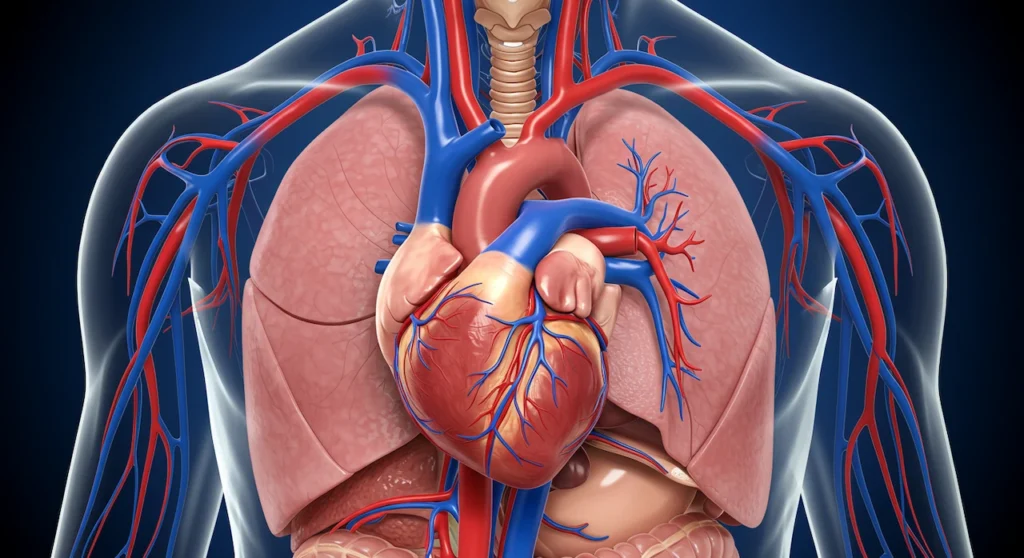Anúncio
Remember when you could sprint up three flights of stairs without breaking a sweat? When your heart felt like an unstoppable engine that could outpace time itself? Here’s the uncomfortable truth: your heart has been trying to tell you something — gently, quietly — but you’ve been too busy to notice.
Anúncio
These signs aren’t the dramatic, Hollywood-style heart attacks. Instead, they’re subtle nudges — little reminders from within that you’re no longer 30 and that your body, especially your heart, needs more of your attention. And no, it’s not “just age.” It’s more nuanced. What if we told you that listening to these whispers could extend your quality of life?

Let’s dive into the 8 most commonly overlooked heart-related symptoms that could be your body’s quiet SOS. You’ll soon understand why noticing them now might make all the difference later.
Anúncio
You Feel Winded After Simple Tasks
Breathlessness used to be reserved for long hikes or full-speed sprints. Now, even a few steps or carrying groceries may leave you gasping. What changed?
This isn’t just about stamina. When your heart can’t pump efficiently, your body doesn’t get the oxygen it needs. Everyday activities become unexpectedly strenuous. It’s a quiet cry for cardiovascular help — not laziness, not a lack of sleep — but a flag that circulation is under pressure.
A weakening heart muscle forces the lungs to compensate, making you feel as though you’re gasping for air. Many adults chalk this up to “being out of shape,” but the reality is more complex — and more urgent.
Your Energy Crashes in the Afternoon
We all experience a mid-day dip, right? But if yours feels like hitting a brick wall, and you find yourself nodding off or unable to focus despite a full night’s rest, your heart might be struggling to meet your body’s metabolic demands.
When your cardiovascular system can’t maintain adequate blood flow, especially during times of peak activity like mid-day, fatigue sets in fast. Your body conserves energy by shutting down non-essential functions.
Sure, coffee helps. But if caffeine is the only thing keeping you awake by 3 PM, your heart may need a more thorough checkup.
Your Feet and Ankles Swell Without Explanation
It’s not just about standing too long or salt intake. Persistent ankle and foot swelling is a classic, if understated, sign of poor venous return.
When the heart weakens, fluid starts pooling in the lower extremities. This condition — known as peripheral edema — might be mild at first, but left untreated, it can escalate into more severe heart conditions, such as congestive heart failure.
You may even notice your shoes fitting tighter or sock lines more visible by evening. That’s your body hinting at deeper vascular inefficiencies.
You Wake Up Feeling Tired Despite Sleeping
You slept. The hours add up. Yet, you wake up feeling unrested, as if your body had been working all night. And in many ways, it was.
Your heart rate should dip during restful sleep. But if your cardiovascular system is under strain, your heart works harder through the night — disrupting cycles of deep rest and recovery. It’s not insomnia; it’s inefficient heart recovery.
In some cases, undiagnosed sleep apnea — closely linked with heart dysfunction — may be the hidden culprit, further compounding cardiac stress during the night.
Cold Hands and Feet Have Become Your Normal
You rub your hands together. Slip into warm socks. But that chill never leaves your fingertips or toes. Blame circulation — or more precisely, poor circulation.
As the heart’s efficiency declines, it prioritizes delivering blood to vital organs, often neglecting the periphery. The result? Chronically cold hands and feet.
This may be particularly noticeable in colder months or when you’re at rest, and it’s a physiological indicator of vascular compromise that shouldn’t be ignored.
You Feel Your Heart Racing During Mild Stress
You’re not running. You’re not even arguing. Yet, during minor emotional triggers or work stress, your heart flutters, pounds, or races.
This sensation, often mistaken for anxiety alone, can signal that your heart lacks the buffer capacity it once had. It’s being pushed too far, too fast, even during relatively mundane scenarios.
Frequent episodes of this kind may indicate arrhythmias or early-stage atrial fibrillation, especially in people over 40. Catching it early may help prevent serious outcomes down the line.
You Get Dizzy When Standing Up Quickly
You go from sitting to standing and suddenly, the room tilts. Brief dizziness or even feeling faint may seem harmless, but in older adults, it can be a red flag for orthostatic hypotension — a condition where blood pressure drops suddenly upon standing.
This reflects your heart’s diminished ability to regulate pressure swiftly and efficiently. Beyond discomfort, these spells can increase the risk of falls and suggest compromised cardiovascular adaptability.
You’ve Lost Interest in Physical Activities You Once Loved
Your body doesn’t lie. If you once enjoyed tennis, hiking, or even long walks, and now find yourself avoiding them, your brain might be acting protectively — shielding your heart from overexertion.
This lack of interest isn’t always about motivation or depression. It may be an instinctive adaptation to fatigue or low oxygen availability triggered by suboptimal heart performance.
Rather than pushing through, it’s crucial to listen to what this resistance is telling you. Often, it’s the first sign that something deeper is going on — long before clinical symptoms appear.
Conclusion
Your heart won’t scream — it whispers. And these whispers often come wrapped in excuses: age, work stress, a bad week. But science, and decades of cardiology experience, tell us these subtle symptoms are anything but benign.
Recognizing them doesn’t mean you’re fragile — it means you’re attentive. Proactive. Ready.
Yes, you may no longer be 30, but a wiser, more informed version of yourself now stands at the helm. And the difference between surviving and thriving? It’s the quiet choice to act on these early signs.
This article is for informational purposes only and does not replace professional medical advice. If you experience persistent or worsening symptoms, consult a licensed healthcare provider.
